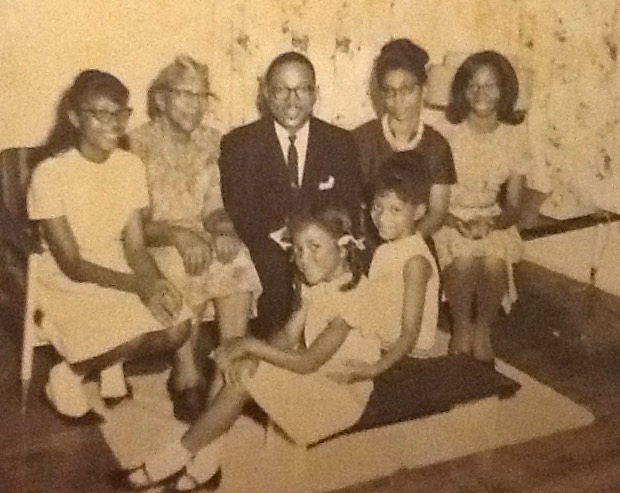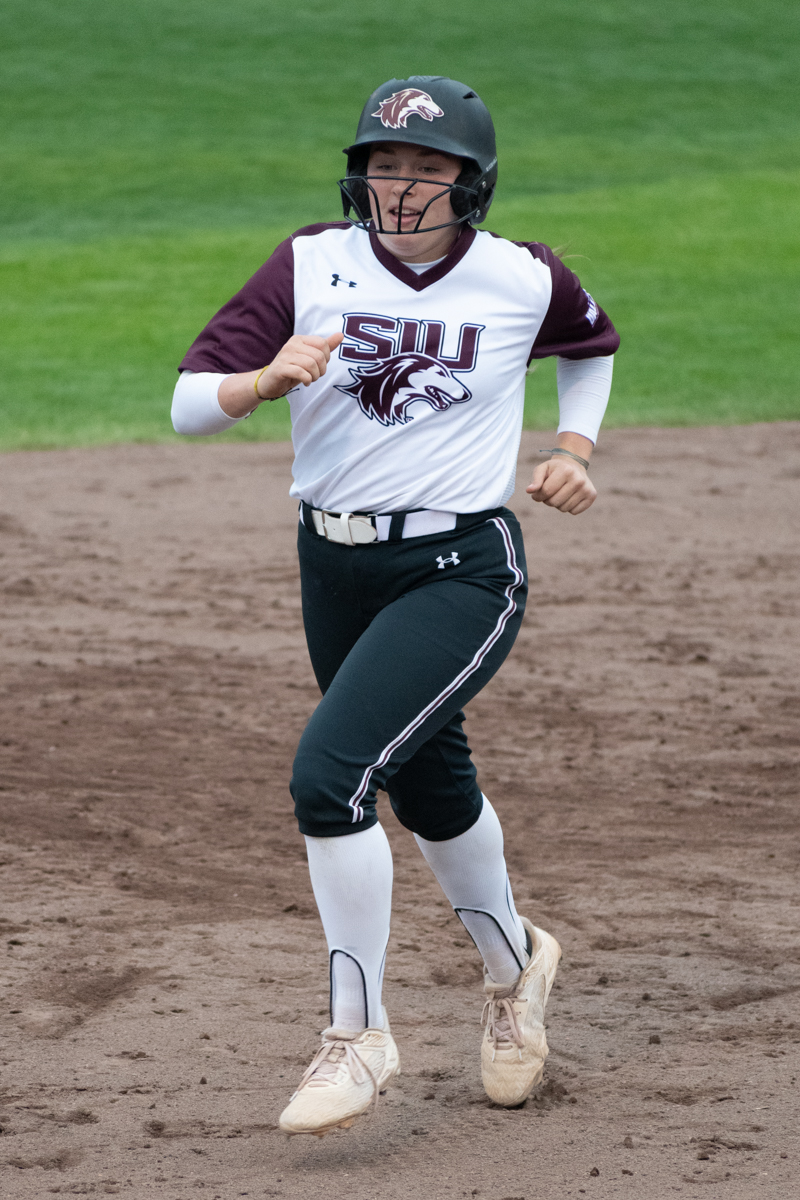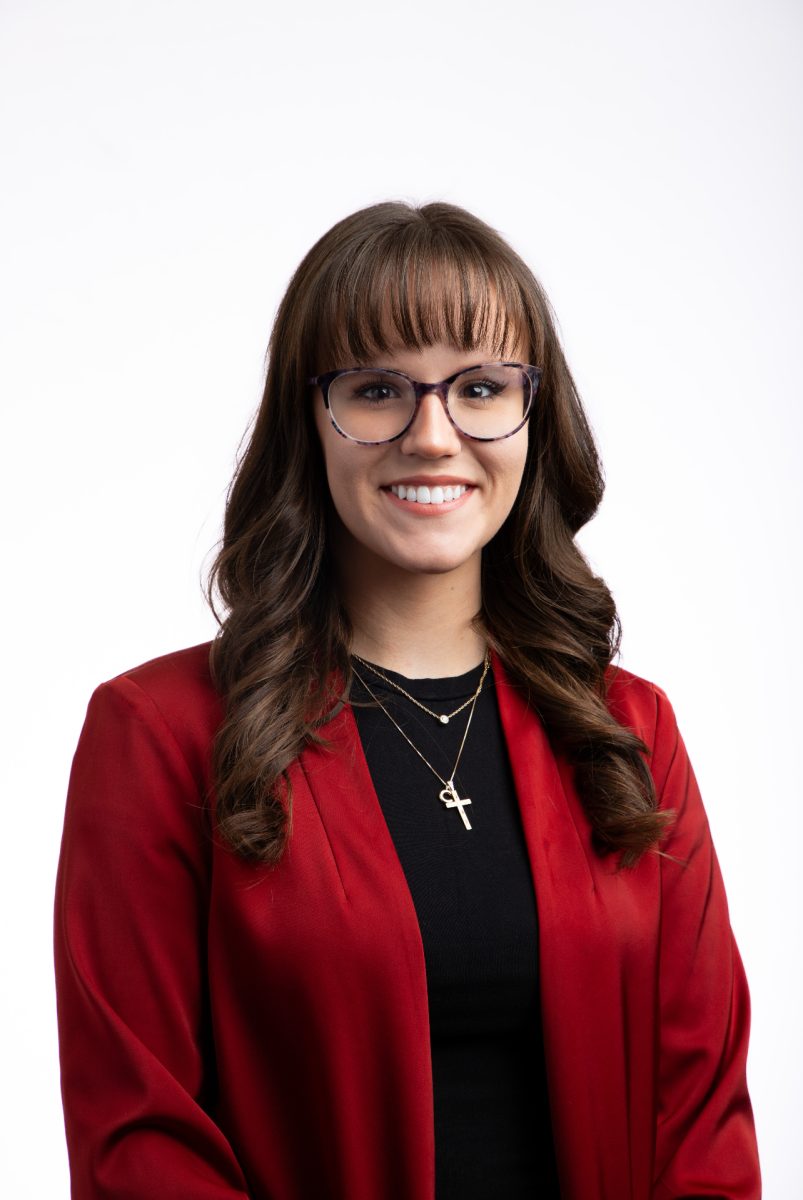From the civil rights era to present day Bethel women provide a foundation for the church
March 18, 2021
Bethel AME Church sits at 316 E Jackson Street, tucked only slightly away from the busy shop and restaurant intersection of Washington and Jackson in Carbondale.
The Bethel congregation was organized in the home of Spencer Williams in 1864, the year before the end of the Civil War according to a written history forwarded by Elizabeth Lewin, a Bethel member and former superintendent of school district 95.
“Bethel is the actual first church of color, organized church of color, in Carbondale,” Lewin said. “Within 10 to 15 years Rock Hill Baptist Church, Freewill Baptist Church, and New Zion, they kind of came along after Bethel.”
Advertisement
In 1868 the congregation erected the first church on North Marion.
The church’s location has changed a couple times since its founding, at one time residing on West Oak Street before settling on its current lot in 1909.
Since its founding, Bethel has been a center for community and service for locals and a historic haven for visitors and the women of Bethel played a key role in the history and present of the church.
“A lot of the foundations and institutions of the northeast side, they came out of the work of Bethel members,” Lewin said.
Even early on the church attracted prominent figures including Eleanor Roosevelt, the wife of then-President Franklin Roosevelt.
“She was on a train tour helping her husband, you know, really kind of calming things down when it was, you know, feared we were getting involved in World War Two,” Lewin said. “She made a pit stop on her train here, and they brought her to Bethel, so we have a picture of her standing in the pulpit of Bethel talking to members of Bethel.”
Lewin’s father was a pastor at Bethel in the 1960’s, and she grew up next to the church.
Advertisement*
“At that time our churches were really central areas or institutions for children to gather,” Lewin said. “We all became really good, good friends, and were able to play and socialize in a safe environment.”
Lewin and Delores Penn, who directs the Feed My Sheep Community Kitchen at Bethel, met at the church as children.
Penn also grew up in the church, where she participated in the choir and youth group.
“We did a lot of fun things. We would travel and see different religious things or even go to church conventions where we’d meet a lot of other young people from different places,” Penn said.
Community service was woven into the fabric of the Bethel community, and Lewin and Penn would help out with bake sales, car washes and other fundraisers.
“Our choir would go to Marion or to the Vienna Correctional Center,” Penn said. “We used to go there and sing and minister to prisoners and stuff like that.”
That service tradition was something they drew from the women at Bethel who mentored them like Guyula Thomas, Louvenia McKinley, Helen Smith, Ima Valentine, and Eurma C. Hayes.
“Eurma Hayes was a force unto herself. I mean, this was a lady I think all of us could have really wanted to model ourselves off of,” Lewin said.
Carbondale was segregated when Lewin was a child and Black students weren’t allowed to reside on campus at Southern Illinois University.
“[Hayes] would always support college students,” Lewin said. “To make sure that they had a proper place to stay and that they were fed and whenever housing was a problem, she sort of stepped up and would advocate to the city and the state politicians to provide support in Carbondale.”
Hayes also helped integrate the Carbondale school system.
“I lived on Jackson Street as a little girl and Attucks School, which was the public school at the time, was right down the street,” Lewin said. “There was a movement to integrate [Attucks], the high school and then the elementary schools, and Mrs. Hayes, along with my dad and others, were pretty active in trying to make that a relatively smooth and safe transition for the children of the northeast side.”
The Eurma C. Hayes Center was eventually named in her honor due to her work in the Model Cities Program which eventually led Hayes to meet with then-President Richard Nixon in Washington, DC, according to History Makers interview with her son William Hayes.
“She had been so vocal on deterioration of the northeast side of town, and had created some noise in the town,” William said. “Nixon was calling representatives to the White House and she was there for a meeting with him.”
Throughout the civil rights movement most women didn’t hold public facing positions like Hayes, but Lewin said the work of the movement wouldn’t have been possible without the work of women, like Lewin’s mother, in support roles.
“There were four little girls that she had to keep track of so I am sure she could have been far more active, but we kept her busy enough keeping track of us,” Lewin said. “She was a member of the missionary and she helped out and led whenever she could.”
Joyce Hayes began attending Bethel, where she met her late husband Richard Hayes who is Eurma’s son, soon after moving to Carbondale for college.
Joyce said she also had a role of support during the civil rights era.
“My husband was really involved in [the civil rights movement], and I had the children at home,” Joyce said. “I know I supported him and everything that he did, and that gave him an opportunity to go out and do what needed to be done.”
Joyce would later help Richard and Rev. Rick Jackson found the Feed My Sheep program where she still volunteers.
“When it first started I would actually be there to help in the kitchen with the cooking and setting up the dining room or some dishes cleaning up afterwards,” Joyce said. “[Later] we started delivering to homebound people, and in the last few years that’s what I’ve been doing.”
Feed My Sheep partners with multiple other churches that contribute money and volunteers throughout the year, and since starting in 2002 has contributed tens of thousands of volunteer hours and hundreds of thousands of meals.
“I really have a lot of admiration for Dolores as the coordinator of the director of the Feed My Sheep Program that actually, you know, it’s hands on and serving people,” Lewin said.
Since the beginning of the COVID-19 pandemic normal church operations have been in flux.
Gatherings were largely moved online, and fewer volunteers were available or able to safely work in the space.
Despite the difficulties Bethel was, among other things, still able to do a clothing drive, a bagged lunch program for school kids, and help Women for Change during their summer program Penn said.
Staff reporter Jason Flynn can be reached at jflynn@dailyegyptian.com, by phone at 872-222-7821 or on Twitter at @dejasonflynn.
To stay up to date with all your southern Illinois news, follow the Daily Egyptian on Facebook and Twitter.
Advertisement








